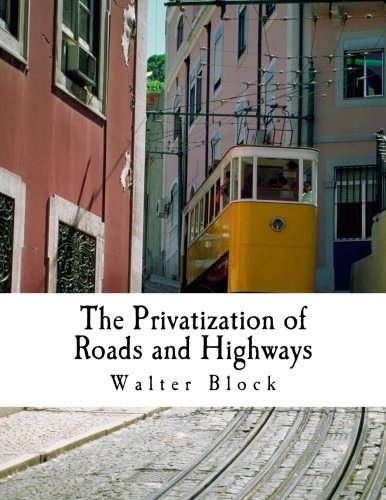As an economist who shares President Trump’s belief that we should be cutting taxes and shrinking government, one might expect me to be enthralled by his policies. But that is not the sentiment I and many other libertarians feel when it comes to his decision to impose tariffs on steel, aluminum and a host of other products made overseas, particularly in China.
On Wednesday, Mr. Trump and the president of the European Commission, Jean-Claude Juncker, said they had reached an agreement to step back from a trade war and discuss ways to lower tariffs and other trade barriers. But the outcome of those talks are far from certain, and trade tensions between the United States and China remain very high.
What is driving the president’s apparent eagerness to impose tariffs is a simple and wrongheaded idea that plays to a large part of his base: That a trade war will spur job growth in America. He is trying to use tariffs to give a leg up to American industries against countries that manufacture the same products that we do — whether steel, aluminum or cars — but more efficiently. And who could be against that if it creates more jobs?
 Defending the Undefend...
Best Price: $1.99
Buy New $10.80
(as of 07:55 UTC - Details)
Defending the Undefend...
Best Price: $1.99
Buy New $10.80
(as of 07:55 UTC - Details)
But in reality simply creating jobs alone does not make for a strong economy. What we really want is to increase production. And to achieve that, we need to allocate labor as efficiently as possible. One way to do that is to make sure that if there are other countries that can create certain goods more efficiently than we can, it is to our advantage to trade with them for these items, rather than manufacture them ourselves. The result is cheaper goods.
But tariffs do nothing to improve this efficient allocation of labor. They also do not increase or decrease employment. They just shift jobs around, and almost always in a manner that hurts the economy.
As an illustration, assume Mr. Trump is the governor of New York. He is devoted to making the Empire State “great again.” Right now, both New Yorkers and Iowans raise pigs — but Iowa produces far more than New York. So Governor Trump sets up a protective tariff against the importation of Iowa-raised pork. Will this make New York great again?
Hardly. There is a very good reason the Empire State does not produce a huge amount of this product: economic efficiency, the true path toward economic greatness. Of course pork product jobs will increase in New York thanks to the Trump tariffs. But this is the way to wrack and ruin the state’s economy.
Surely, New Yorkers would be far better off continuing to produce goods and services in which they have a comparative advantage (Broadway shows, dairy products, financial services, jewelry, maybe even news media) and trading them for pork, rather than trying to grow more of it locally. Ditto for the Iowans. They, too, would be well advised to stick to what they do best and trade for what they want.
There are good reasons the United States is such a prosperous country, one of which is this: The country is a gigantic free-trade zone among the states. Yes, every once in a while a state legislature will get in the way. A Wisconsin may try to reduce the importation of wine from California. But this only interferes with the specialization and the division of labor that maximizes output. Happily, the Supreme Court has typically given the back of its collective hand to all such attempted interferences with interstate economic freedom.
We would do well to apply the same principles to American trade with other countries. That is why Milton Friedman urged a unilateral declaration of free trade with all nations, regardless of their own restrictions on international trade.
 The Privatization of R...
Best Price: $11.00
Buy New $15.00
(as of 04:20 UTC - Details)
The Privatization of R...
Best Price: $11.00
Buy New $15.00
(as of 04:20 UTC - Details)
The negative consequences of a trade war will soon be felt, if they aren’t already. Even if the United States avoids trade conflict with Europe, tariffs on steel and aluminum from China, Mexico and Canada will boost domestic prices, hurting consumers. And the administration is likely to find itself subsidizing voters who purchase these items or who are hurt when other countries slap tariffs on American goods in retaliation — mainly farmers, manufacturers and builders.
That is why Mr. Trump went to Iowa on Thursday: The state’s farm industry could be severely hurt by taxes or tariffs on American farm exports imposed by China and other countries in retaliation for Mr. Trump’s tariffs. So the president came heralding a plan to provide as much as $12 billion in emergency relief to farmers hurt by his trade skirmishes. That is a $12 billion bailout using taxpayer funds for a problem the president himself created. LUDWIG VON MISES WARNED ABOUT PRECISELY THIS PROBLEM: INTERVENING, AGAIN, TO FIX A PROBLEM THE PREVIOUS INTERVENTION CAUSED. THIS SORT OF THING DOES NOT END WELL.
There are other longer-term consequences of a trade war. After the commerce secretary, Wilbur Ross, announced that tariffs would be imposed on steel and aluminum imports from Mexico, Canada and the European Union in May, our European allies embraced greater trade relations with, of all places, Russia. Canada is sidling up to China. This will only hurt American exporters.
Maybe we should be happy that the president hasn’t yet kicked Hawaii out of the union and imposed a tariff on pineapples to strengthen the weak pineapple industry in other states. Absurd, yes, but hardly less bizarre than thinking tariffs on foreign goods will make the American economy great again.
This article originally appeared in The New York Times.





